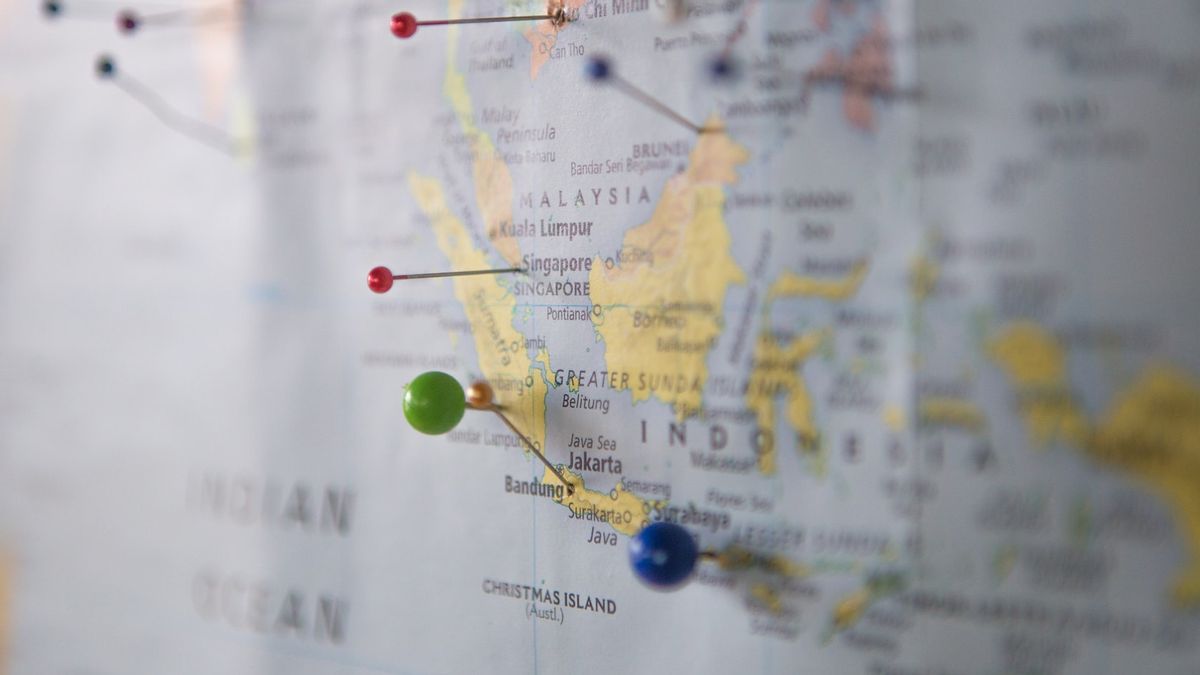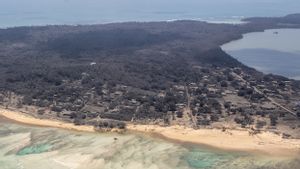JAKARTA - The problem of archiving in a state institution has a huge impact on the sovereignty of the Unitary State of the Republic of Indonesia (NKRI). The incident of the release of Sipadan-Ligitan from Indonesian soil due to the lack of support for the archives of ownership of the two islands has become a valuable lesson for the Government of Indonesia.
Secretary of the National Border Management Agency (BNPP) Restuardy Daud admits this fact, so it is necessary to strengthen archives for other islands in Indonesia, especially the Uninhabited Outer Small Islands (PPKT).
"We have a very large role or contribution or space there because there are quite a lot of state documents related to BNPP tasks. The agreement text, then there is a map that was agreed upon with neighboring countries, and so on, which we get from the implementation of our functions. We need to secure it, this is a state asset," said Restuardy at the BNPP Archives Technical Guidance (Bimtek) activity in Jakarta, as seen from the Ministry of Home Affairs website, Sunday, February 6.
Touching on archives in border areas, Director of Archives of the National Archives Center of the Republic of Indonesia (ANRI) Azmi asked BNPP to learn from the Sipadan-Ligitan dispute between Indonesia and Malaysia that occurred in the 2000s era, long before the formation of BNPP.
At that time, Indonesia lost at the International Court of Justice because it did not have an important document that determines land ownership at the border.
"We lost in one type of archive called the administration record," said Azmi in Jakarta.
He said the process of resolving the Sipadan-Ligitan dispute at that time had gone through several stages of checking the archives of each country and its predecessor colonial government.
First, checking the existence of "Sipadan-Ligitan" in various applicable regulations, ranging from the Basic Law (UUD), Laws (UU), Government Regulations (PP), Presidential Regulations (Perpres), and so on.
"Secondly, there is a treaty record. Was there an agreement between the Dutch East Indies and the local kingdom at that time? There was. But England/Malaysia also had one," said Azmi.
Next, look at the regional boundary record or demarcation record. Both Indonesia and Malaysia both have maps that include Sipadan-Ligitan in their territory.
"What we don't have is the administration record. The administration record is an archive of processing its territory. Well, Malaysia has been processing these (islands) since the 40s, there has been a general tax collection, infrastructure development, and we don't have that data," Azmi explained.
The Dutch East Indies colonial government had only visited Sipadan and Ligitan Islands twice, namely when they dropped logistics goods and chased pirates who had fled to this area. As a result, Indonesia lost at the International Court of Justice, so that Sipadan-Ligitan fell into the hands of Malaysia.
Azmi emphasized that this incident should be a lesson for the Indonesian government, especially BNPP which manages the border area. The existence of the government in the border areas must be managed properly and the archives must be maintained.
As previously reported, BNPP is improving the quality of archiving through the Archives Bimtek activity which will be held for two days, namely 3-4 February 2022. Through this event, it is hoped that archive management within BNPP will improve.
VOIR éGALEMENT:
The English, Chinese, Japanese, Arabic, and French versions are automatically generated by the AI. So there may still be inaccuracies in translating, please always see Indonesian as our main language. (system supported by DigitalSiber.id)

















